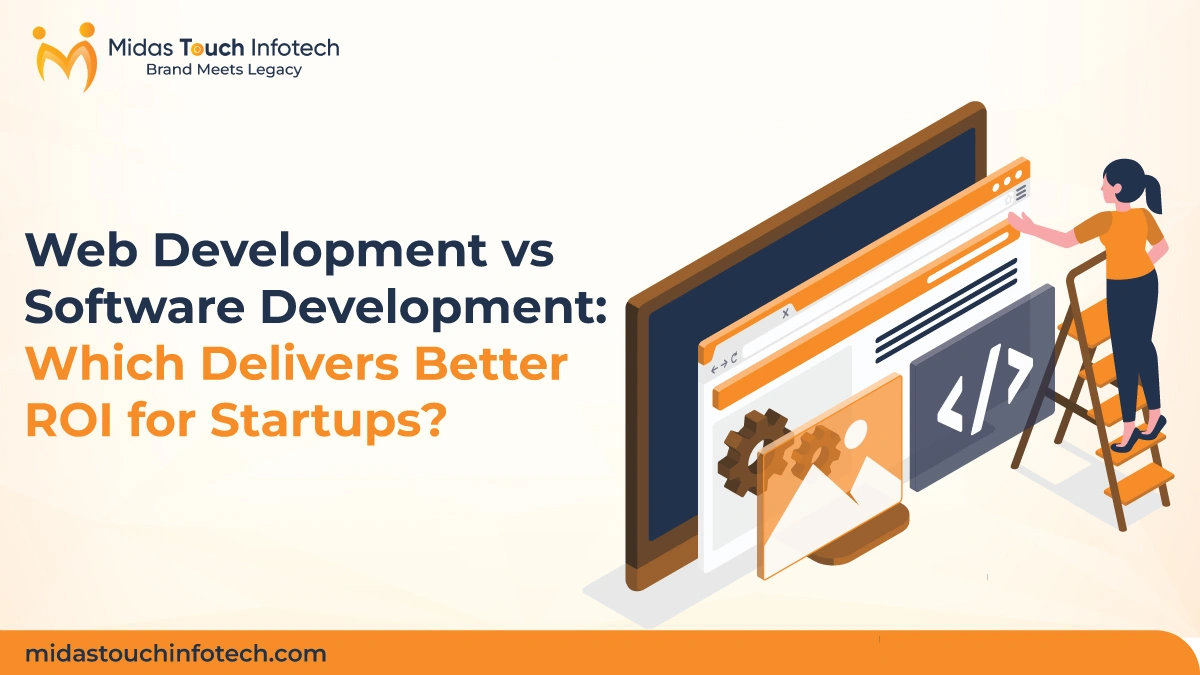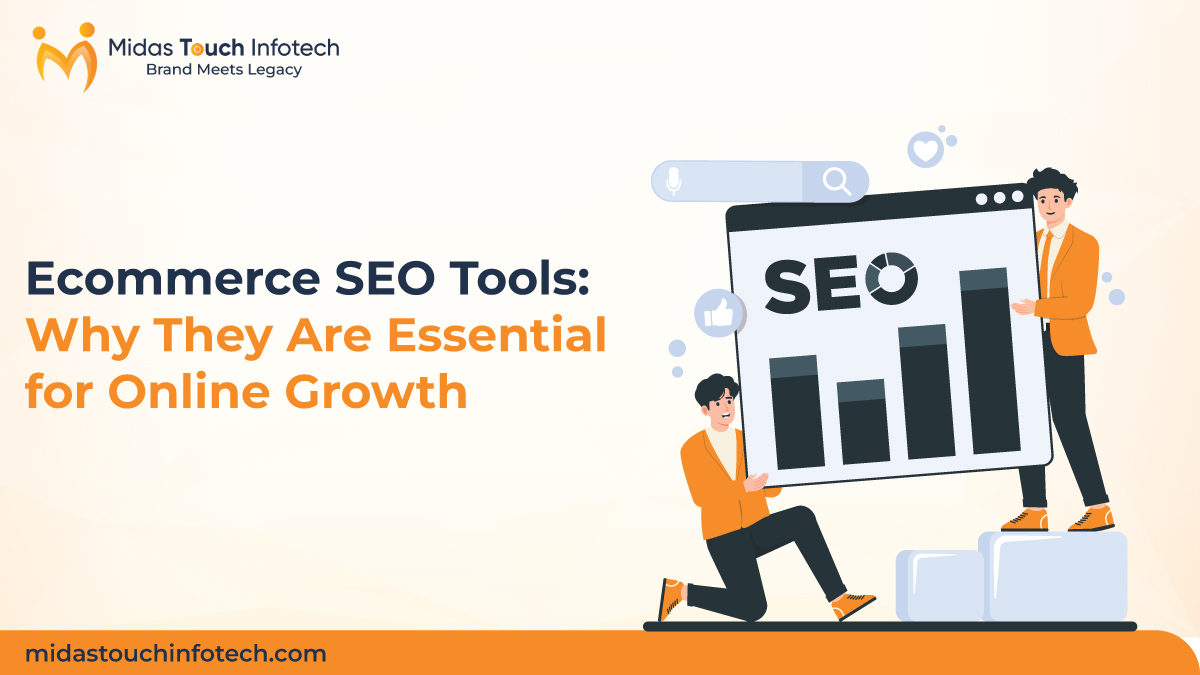
In today’s digital-first world, technology is no longer optional for startups, it’s foundational. From product delivery to customer engagement, the right tech stack can determine whether a new venture thrives or fades out. For early-stage businesses operating with limited resources, choosing the right development approach is critical for maximizing ROI (Return on Investment).
According to a report by Statista, global startup funding reached over $415 billion in 2022, with nearly 30% of that allocated to digital infrastructure and product development. This signals how crucial technology decisions are when laying the groundwork for sustainable business models.
In this article, we’ll explore the debate between web development vs software development, breaking down their ROI impact, use cases, cost implications, and strategic value especially relevant for those seeking website development services or globally.
Let’s unpack which solution delivers better value for your startup’s investment.
Understanding Web Development
⇒ What is Web Development?
Web development involves the creation and maintenance of websites and browser-based applications. It includes:
- Frontend development (what users interact with visually).
- Backend development (server-side logic and databases).
- Full-stack development (which combines both).
Whether you’re launching an e-commerce store or a SaaS product, web development is often the first digital step for startups.
⇒ Key Benefits for Startups
- Faster Time-to-Market: Web apps can be launched within weeks, which is crucial for MVPs.
- Lower Initial Costs: Using platforms like WordPress, Shopify, or low-code tools helps keep budgets tight.
- Easy Maintenance: Updates can be rolled out quickly without requiring user-side installations.
- Cross-Device Accessibility: Runs on browsers mobile, tablet, or desktop.
⇒ Common Use Cases
- Startup landing pages or marketing websites.
- Online stores or marketplaces.
- SaaS platforms like CRMs, project management tools, etc.
Also Read: Step-by-Step Web Development Process Every Business Leader Should Know
Understanding Software Development
⇒ What is Software Development?
Software development is the process of designing and building standalone or custom applications. These can be tailored to highly specific business processes, and may include:
- Desktop applications
- Mobile applications
- Enterprise-level systems
This is ideal for startups needing precise control and functionality.
⇒ Key Benefits for Startups
- High Customization: Tailored to your workflow, giving you competitive differentiation.
- Advanced Functionality: Handles complex logic beyond the scope of most web tools.
- Scalability: Grows with your business and integrates deeper into operations.
⇒ Common Use Cases
- ERP or inventory management systems.
- Custom apps for healthcare, fintech, logistics.
- Mobile apps for customer onboarding and engagement.
Cost Comparison
⇒ Web Development
- Lower Upfront Cost: Shared hosting, templates, and open-source frameworks keep expenses low.
- Subscription Tools: Tools like Wix, Squarespace, or Shopify reduce custom coding needs.
⇒ Software Development
- Higher Development Cost: Involves design, architecture, testing, and deployment.
- Maintenance Overhead: Bug fixes, versioning, and platform updates are time and cost-intensive.
ROI Factors for Startups
⇒ Time-to-Market
Faster deployment often leads to quicker customer validation and revenue. Web apps generally win here, especially for MVP launches.
⇒ Scalability
Custom software can be built with long-term scalability in mind, accommodating growing user bases and expanding features with ease. Web apps may require significant refactoring when scaling.
⮩ Maintenance & Upgrades
- Web Development: Centralized updates ensure users always access the latest version.
- Software Development: Updates may require client-side installations or significant testing cycles.
⮩ User Engagement & Reach
- Web Apps: Universally accessible across devices and browsers—good for reach.
- Software: More immersive and tailored experience for specific users.
⇒ Long-Term Value
Custom software, while costly upfront, often yields long-term ROI by deeply integrating into your operations. Web apps provide value through quick monetization and broader market reach.
Factors to Consider When Choosing
⇒ Startups should evaluate:
- Nature of Business: Are you a product-based startup or a service platform?
- Target Audience: Mass market or niche B2B clients?
- Budget Constraints: Initial capital and ongoing support resources.
- Required Functionality: Do off-the-shelf tools suffice?
- Scalability Needs: Will your platform evolve significantly in 1–2 years?
- Security & Compliance: Especially important for healthcare, finance, and legal tech.
Also Read: Top Reasons to Hire a Responsive Web Development Company in 2025
Case Studies / Examples
⇒ Example 1: Quick ROI via Web Development
A fashion startup in Mumbai launched an e-commerce site using website development services in India through Shopify. Within 3 months, they were processing 200+ orders daily, recovering their tech investment in under 6 months.
⇒ Example 2: Long-Term ROI via Software Development
A logistics startup developed a custom dispatch and fleet management system. Though it took 10 months to deploy, it cut operational costs by 30% annually, delivering long-term ROI beyond initial expectations.
Web Development vs Software Development: Summary Table
| Factor | Web Development | Software Development |
|---|---|---|
| Cost | Lower | Higher |
| Time-to-Market | Faster | Slower |
| Scalability | Moderate | High |
| Customization | Limited | Extensive |
| Maintenance | Easier | Complex |
Want to Maximize ROI with Smart Development Choices? Let’s Talk
Both web development vs software development have the potential to deliver strong ROI but the better choice depends on your startup’s goals, complexity, and budget.
- If you’re a lean startup needing a quick launch and low investment, web development offers the fastest path to ROI.
- If you’re solving complex, process-heavy problems with unique requirements, software development may yield more long-term value.
Whether you’re considering website development services in India or evaluating full-fledged product development, always align your tech investments with your core business strategy.




